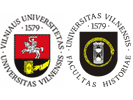Recognition of de jure question and the entering into diplomatic relations with Lithuania and Czechoslovakia were discussed together. At the Paris Peace conference Czechoslovakia considered Lithuania as a part of Russian question. Only in 1921 autumn Lithuania and Czechoslovakia exchanged of non official representatives. In 1921 12 29 Czechoslovakia recognized Lithuania de jure and excluded it from Russian question. In 1922 Czechoslovakia diplomatic representative in Kaunas J. Galia became a consul.
J. Galia (1921–1928), M. Niederle 1928–1933) and J. Skalicky (1933–1939) represented Czechoslovakia interests in Lithuania. Only J. Skalicky was the ambassador extraordinary from 1936. The possibility to replace the consulate of Czechoslovakia to embassy of Czechoslovakia in Kaunas was discussed in the ministry of foreign affaires of Czechoslovakia in 1927. The embassy was opened only formally: ambassador extraordinary resided in Stockholm (till 1936), whereas a consul in Kaunas got charge d’Affaires title. In 1925 J. Galia provided an honour consulate in Klaipėda (the first consul was M. Reišys, from 1933 – J. Galia junior).
One of the most important questions raised by the Ministry of Foreign Affaires of Czechoslovakia for its diplomatic corps was the ability to make and develop the diplomatic contacts. Diplomats were also charged to care about the political questions and follow the different changes in the country. They informed the Ministry of Foreign Affaires of Czechoslovakia about the political and economical questions in their political reports.
J. Galia – the first Czechoslovakia representative – was very active diplomat because of his personal characteristics. He succeeded good relations with Lithuania politics. Being in Kaunas he personally worked on the question, that Lithuania would officially be recognised de jure by Czechoslovakia as soon as possible. Also J. Galia invited trades of Lithuania and Czechoslovakia to participate in exhibitions and encouraged them for close inter-cooperation. The import of Czechoslovakia to Lithuania increased significantly during his term of office in Kaunas.
M. Niederle relations with Lithuania politics were not very good. In 1928–1933 (the period he worked in Kaunas) the political cooperation was small. His role in solving political problems is not remarkable. Lithuania’s trade begun to orientate towards the England’s market during the 4th decade, therefore M. Niederle cared about the strengthening of Czechoslovakia’s interests in the Lithuania’s market.
J. Skalicky was the most active in the political cooperation between Lithuania and Czechoslovakia. Lithuania politics were informed Germany aggression to the Middle Europe by hi m. J. Skalicky had the close contacts with minister of Lithuania’s Foreign Affairs – S. Lozoraitis. He also cared about the maintenance of Czechoslovakia’s economic interests in Lithuania. During the personal contacts with official persons of Lithuania J. Skalicky always marked the importance of such relationships.
Įteikta 2003 05 30
Priimta spaudai 2004 05 18
| 

 dizainas ir programavimas giriaus
dizainas ir programavimas giriaus  dizainas ir programavimas giriaus
dizainas ir programavimas giriaus